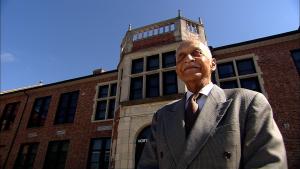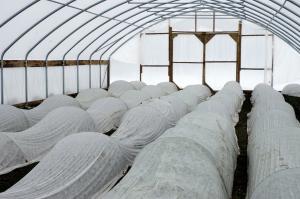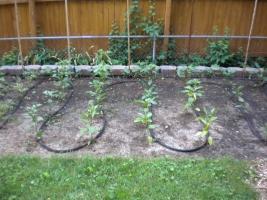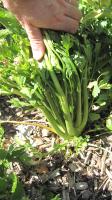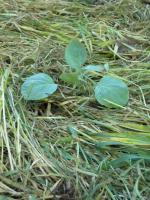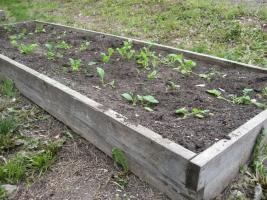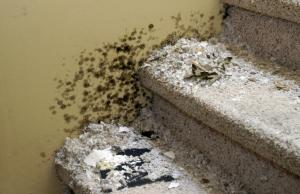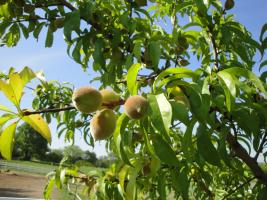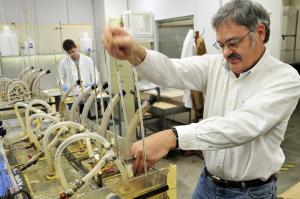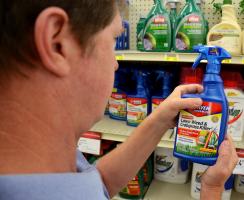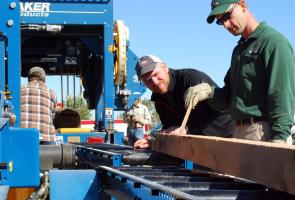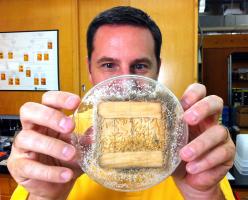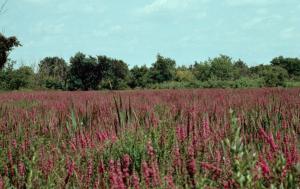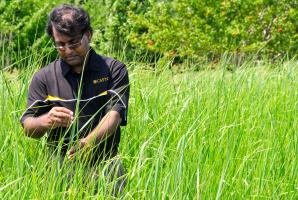New documentary on Eliot Battle previews Feb. 25 on MU campus
COLUMBIA, Mo. – Local civil rights pioneer Eliot Battle is the subject of a new documentary that chronicles his pivotal role in desegregating schools, housing and the Columbia community. On Feb. 25 at 7 p.m., University of Missouri Extension will hold a preview screening of “Battle: Change From Within” at Bush Auditorium in Cornell Hall on the MU campus. The screening is free and open to the public.
Paying for college
COLUMBIA, Mo. – Many students have the desire to go to college, but not the funds to pay for it. Fortunately, there are options available to help students afford higher education.
Record-keeping for income taxes
COLUMBIA, Mo. – Do-it-yourself tax preparation, for complicated returns, means shuffling though statements, receipts and other records. Your record-keeping system for tax-related documents can be as simple or complex as you want.While color-coded, alphabetized records may be appealing to some, it isn’t really necessary to overcomplicate record keeping.
The lowdown on high tunnels
COLUMBIA, Mo. – If you want locally grown produce in February, you usually don’t have many choices in Missouri other than root vegetables. However, on a chilly February morning at the Columbia Farmers Market, the Thomas family of Share Life Farms is selling not just root veggies but also lettuce, mustard greens and assorted varieties of kale.
What are your trees worth?
COLUMBIA, Mo. – This time of year Larry Godsey gets a lot of calls from woodland owners asking for advice about taxes on timber they have sold.Godsey, an economist with the Center for Agroforestry at the University of Missouri, usually starts by asking, “What is your basis?”A lot of woodland owners don’t know, and that means they could be selling their timber for too little, and paying too much in taxes.
Start seeds indoors to jump-start spring gardening
COLUMBIA, Mo. – Seeds hold infinite potential for a seasoned gardener.
Managing your garden's soil moisture doesn't have to be difficult
BLUE SPRINGS, Mo. – Managing soil moisture is an important part of successful vegetable gardening in the Midwest, says a University of Missouri Extension horticulturist.
Spring pruning: Subtraction with a plus
COLUMBIA, Mo. – Trees, hedges and bushes…. When spring comes, the impulse is to hand out haircuts.Correct pruning can help keep your plants’ size in check, remove undesirable growth and stimulate desirable growth. Spring is a good time for tree and shrub pruning for several reasons, says Chris Starbuck, horticulture specialist for University of Missouri Extension.
Lending a helping paw
KINGSTON, Mo. – He’s a different kind of dog for a different sort of farmer.Bruce Trammell hopes that dog soon will help him get up to speed on his farm.Thanks to PHARM Dog, the brainchild of University of Missouri Extension AgrAbility specialist Jackie Allenbrand, Trammell now has Odie, a yellow Labrador retriever whose job is to help the farmer regain his independence despite his disability.
Lesser-known plants that deserve a place in the Midwest vegetable garden
BLUE SPRINGS, Mo.–There are a lot of vegetables out there for home gardeners in the Midwest to try beyond the standard offerings at the garden center, says a University of Missouri Extension horticulture specialist.Marlin Bates suggests gardeners look into some of the lesser-known members of the Apiaceae (ay-pee-AY-see-ee) family.
Get into a two-week planting schedule
BLUE SPRINGS, Mo. — Too many gardeners go all in when it comes to planting a vegetable garden by planting the entire garden at once, says a University of Missouri Extension horticulturist.
Benefits of a well-drained soil
BLUE SPRINGS, Mo. — An ideal soil is half solid and half pore space by volume, and that pore space should be equal parts air and water. Gardening practices greatly influence pore space in cultivated soils. “Most gardeners don’t have an ideal soil, particularly as it relates to pore space,” said Marlin Bates, University of Missouri Extension horticulturist.
'Ghosts' of storms past may haunt damaged homes
PERRYVILLE, Mo.—Homeowners who made repairs after last year’s floods and windstorms may now be finding ghostly shadows—dirty patches of mold and mildew—in parts of the home that got wet. This is a health hazard for people living in the home.“Remember that mold is everywhere. All you need is moisture and a food source, like your home, to have it grow,” said Frank Wideman, University of Missouri Extension natural resource engineering…
Is it cost-effective to bale your own hay?
BLUE SPRINGS, Mo. — The greening of pastures and the rising of temperatures have led ruminant-livestock owners to start thinking about the upcoming haying season.“Because hay is a relatively inexpensive feed when grass is unavailable, many livestock owners want to produce hay for the winter from the abundance of grass that their pastures yield in the spring,” said Whitney Wiegel, University of Missouri Extension agriculture business…
When sperm go bad
COLUMBIA, Mo. – All bull semen is not created equal, but Peter Sutovsky has found a way to level the bovine-fertility playing field.Research from the University of Missouri reproductive scientist identifies faulty sperm and takes them out of the equation for artificial insemination (AI) of cattle.
Thinning fruit in the home orchard
BLUE SPRINGS, Mo. — Sometimes fruit trees try to produce more fruit than is good for the plant. Poor fruit size and flavor, plant stress, and alternate bearing can result when certain types of fruit trees aren’t properly thinned.“For gardeners with fruit trees, this process may be difficult, but it’s necessary to avoid these tendencies,” said Marlin Bates, University of Missouri Extension horticulturist.
Turning food waste into energy
COLUMBIA, Mo. – America is not only a land of big waistlines, but also of big waste when it comes to food.In the future, those table scraps could help power homes and businesses.University of Missouri researchers want to get more from those leftovers through by a “recipe” for harvesting methane.
A problem with patches
COLUMBIA, Mo. – A lawn can be a source of pride when healthy and green, but a front yard full of disease can be an embarrassment.
Top 10 horticulture tips from veteran MU Extension agronomist
BLUE SPRINGS, Mo. – During her 23 years as a University of Missouri Extension agronomy specialist, Pat Miller has answered a lot of questions and looked at a lot of plants. Here are her top 10 horticulture tips.
High-grading brings down health, value of woodland
COLUMBIA, Mo. – Unsuspecting woodland owners selling timber often fall victim to a practice known as “high-grading”—cutting the best trees and leaving the rest.“It’s like a rancher selling a prize-winning bull and keeping the losers for breeding,” said Hank Stelzer, University of Missouri Extension state forestry specialist. “You’re cashing in your best assets and investing in your worst.”
A burning question
COLUMBIA, Mo. – To burn, or not to burn? That’s a question natural resource managers have asked themselves for years—often coming up with conflicting answers. Joe Marschall, research specialist at the Missouri Tree Ring Laboratory at the University of Missouri College of Agriculture, Food and Natural Resources, seeks to bring science to that debate.
A gnawing problem
COLUMBIA, Mo. – The mouth of a termite might be small, but an infestation can take a big bite out of a home if left undetected.
Does that plant ‘fill in quickly’ or is it invasive?
BLUE SPRINGS, Mo. — When buying plants you sometimes need to read between the lines. When the label says the plant “fills in quickly,” that may be a code word for “invasive.”“It pays to do a little research, ask some questions and check with other gardeners before purchasing plants,” said Pat Miller, University of Missouri Extension agronomy specialist.Miller identifies some species you might think twice about planting:
Fueling the future
NEW FRANKLIN, Mo. –It takes nature millions of years to turn organic matter into fuel. Technology can do the same thing in hours or even minutes using plants. But so far we still depend on fossil fuels to keep our cars—not to mention our entire civilization—running.
Be informed before using soybeans for livestock forage
SEDALIA, Mo.—Many Missouri producers are asking if it is safe to use soybeans for livestock forage. The topic was brought up repeatedly by attendees at the Missouri State Fair in Sedalia.Tim J. Evans, toxicology specialist at the University of Missouri College of Veterinary Medicine, answered inquiries on the subject by researching the chemical mechanism of action of a commonly used herbicide, Cobra.
